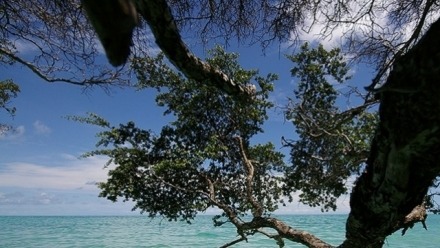Beyond Fishing: Torres Strait Islander women’s connections to the sea

Monica E. Mulrennan,
Department of Geography, Planning and Environment,
Proudly sponsored by the Centre for Aboriginal Economic Policy Research (CAEPR), ANU Gender Institute, ANU Research School of Social Sciences (RSSS) and the ANU's Office of the Vice-Chancellor
While the knowledge and practices of Indigenous coastal and marine societies has attracted the attention of many scholars, the focus has tended to be on the contribution of men while the activities of women have either been overlooked or, at best, narrowly described. Drawing on more than twenty years of collaborative research with the eastern Torres Strait Island community of Erub, this presentation explores the nature and extent of Indigenous Torres Strait Islander women’s engagement in fishing and other marine activities as well as their related knowledge, practices and motivations. In addition to highlighting the richness of that knowledge and the significance of their contribution to the subsistence economy, the myth of their limited participation in commercial fishing is debunked. Beyond their engagements in fishing, these women are found to hold deeply-felt personal attachments and connections to “solwata”. The latter are reflected in the extent to which the rhythms of the sea shape and define their daily routines, life histories, and their personal and collective identities. The presentation concludes with a call for greater attention to the connections Indigenous women have to sea space and for fisheries management to accommodate and support their increased participation in the formulation and implementation of contemporary fisheries policy.
Bio:
Monica Mulrennan is an internationally-recognised geographer with expertise in indigenous environmental stewardship. Spanning almost three decades, she has conducted partnered research with Torres Strait Islanders and James Bay Crees (northern Canada) on community-driven strategies for environmental and cultural heritage protection. Her work addresses the following themes: local ecological knowledge, land and sea tenure systems, indigenous stewardship of land-sea environments, protected area creation, small-scale fisheries development, and human adaptations to environmental change. She has also contributed to indigenous land-use planning and policy through her involvement in the documentation of native title claims, the creation of indigenous protected areas, and the development of indigenous strategies for environmental stewardship. A central focus of her work has been to document how state conceptions of jurisdiction, property and boundary-making have resulted in a distortion and fragmentation of indigenous coastal/marine territories, ideas that have contributed to recent progress in resolving indigenous rights and interests in the sea, particularly in Australia. Building on this work (and supported by her membership of the McGill-based Centre for Indigenous Conservation and Development Alternatives - CICADA), her research explores strategies – such as fisheries co-management, income security programs, protected area creation and regional conservation plans – through which indigenous groups can assert and regain authority over their lives, territories and livelihoods.
Her current work with Indigenous women and their use, knowledge and attachments to sea space highlights the importance of paying attention to the crucial yet often invisible role of women and their particular relationships with their land and sea territories.
There will be refreshments after the lecture.







